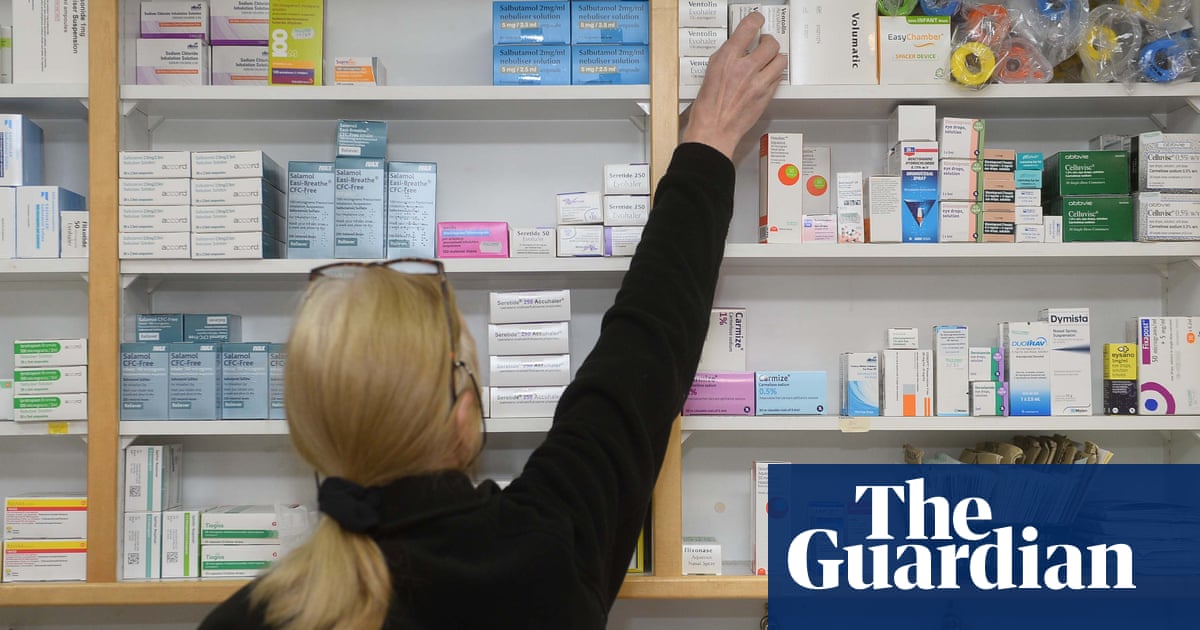Photo credit: www.theguardian.com
UK Government Engages with Pharmaceutical Industry Amid US Tariff Threats
The UK government is actively discussing the implications of potential tariffs with pharmaceutical companies as concerns rise over potential disruptions in the supply of essential medicines. The conversation comes as calls grow for the establishment of an emergency taskforce to safeguard the pharmaceutical supply chain.
UK pharmaceuticals account for nearly £7 billion in exports to the United States, making it a significant sector, just trailing behind the automotive industry’s £8.3 billion exports. In light of this, government representatives are working diligently to preserve tariff exemptions for British drug manufacturers, especially in the context of prospective trade negotiations. However, the unpredictability of the Trump administration’s stance creates uncertainty across the sector.
Government insiders have underscored the importance of this sector to the economy and have confirmed ongoing dialogue with industry leaders regarding measures to protect pharmaceutical exporters in case tariffs are levied. One spokesperson mentioned that these discussions aim to establish ways the government can mitigate risks faced by the industry should tariffs be imposed.
Despite the industry’s reluctance to publicly comment on the potential for tariffs, pharmaceutical companies have been actively lobbying against proposed levies on branded medicine sales to the National Health Service (NHS), arguing that the current pricing exceeds those in comparable markets.
In Europe, many global pharmaceutical corporations have reached out to the European Commission’s president, Ursula von der Leyen, seeking assistance to ensure their operations remain viable amidst the looming threat of US tariffs. They have expressed concerns that such tariffs could accelerate a shift of the pharmaceutical industry from Europe to the United States, where medicine prices are notably higher.
The fears extend beyond individual companies to the entire global supply chain, where tariffs could disrupt the availability of medicines worldwide. In the UK, the Liberal Democrats have called for the formation of an emergency taskforce to ensure a stable supply of medications.
Helen Morgan, the party’s spokesperson for health and social care, urged Health Secretary Wes Streeting to act decisively to protect NHS funding and avert any drug shortages that may arise as a result of the geopolitical tensions. She emphasized the need for the public to have confidence in the availability of necessary medications amid these challenges.
The government has attempted to alleviate concerns by downplaying the likelihood that US tariffs will lead to shortages in drug supply. Nonetheless, Streeting has acknowledged that the introduction of pharmaceutical tariffs could add another layer of complexity to an already intricate supply chain.
Former Chancellor of the Exchequer and Health Secretary Jeremy Hunt remarked on the lingering repercussions of the Covid-19 pandemic, suggesting that missed opportunities in securing vital supply chains for pharmaceuticals could have devastating consequences. He referenced AstraZeneca’s recent decision to cancel a £450 million expansion of its vaccine facility in Merseyside, attributing this to reduced government funding support.
Current roads minister Lilian Greenwood assured that the government is actively negotiating to ensure that no tariffs are implemented. She emphasized the significant impact of the life sciences sector on the UK economy, aligning its interests with those of the automotive industry during trade discussions.
While the potential for tariffs poses risks, some industry stakeholders are viewing it as an opportunity for the UK’s life sciences sector to emerge as a more attractive option for companies compared to the US, which is experiencing cuts in scientific research positions. With the introduction of global talent visas, there is an opportunity to attract skilled scientists and foster an environment conducive to innovation.
Labour MP Chi Onwurah stressed the need for the government’s life sciences strategy to evolve in light of geopolitical dynamics, highlighting both the threats and opportunities present. Shadow Health Secretary Edward Argar warned that without a proactive approach to managing tariff impacts, both patients and the nation’s economy could bear the brunt of any disruptions to the already complex pharmaceutical supply chains.
Source
www.theguardian.com

